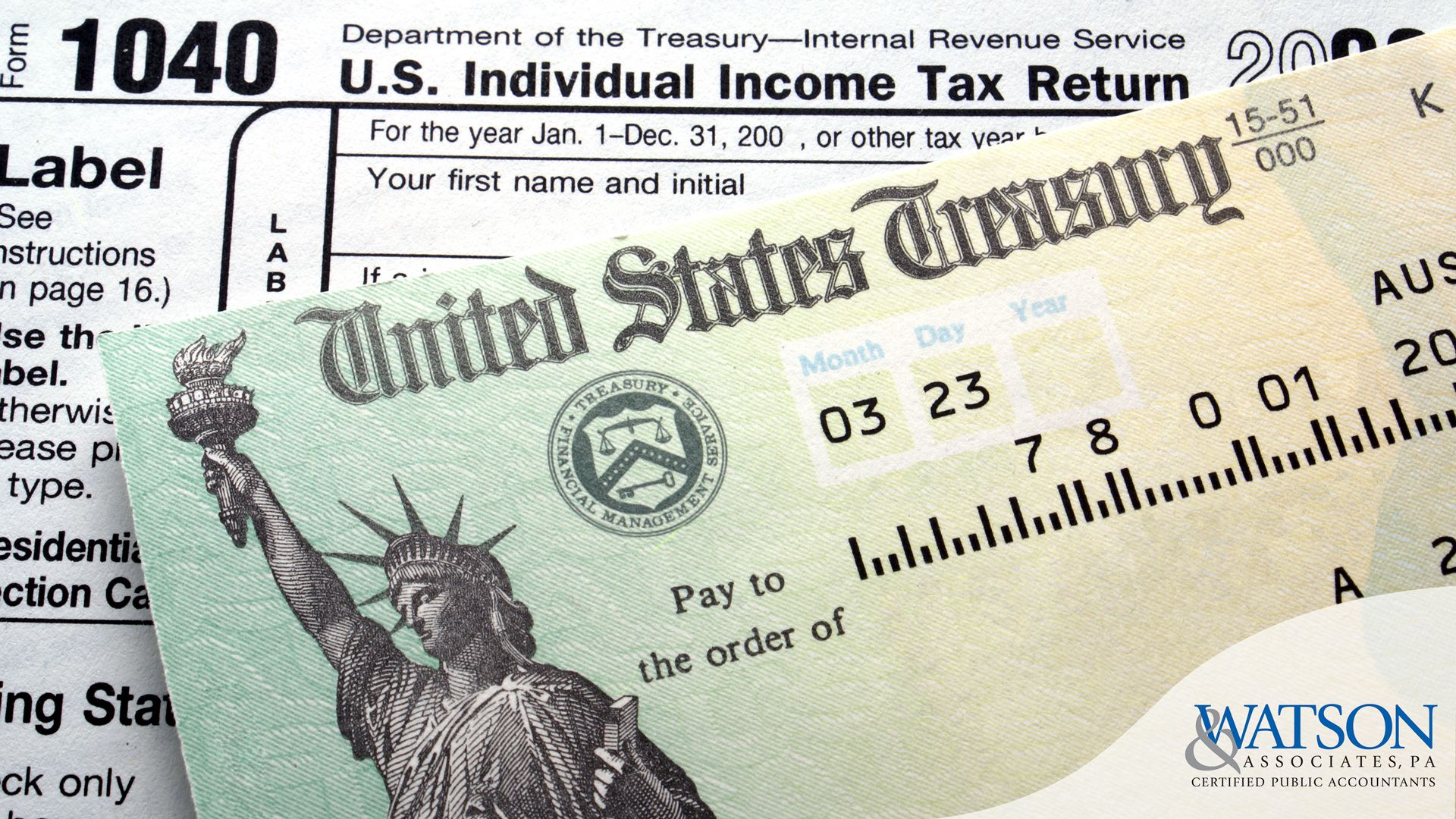
A brief overview of the CARES Act- Individual Provisions
Congress has just passed the largest stimulus package in U.S. history. It’s an incredibly complicated law. I’m going to try and focus on the areas that I think will benefit most of our clients.
Recovery rebates for individuals
Perhaps the provision drawing the most interest, this section provides a refundable income tax credit against 2020 income of up to $2,400 for married couples filing a joint return, with all other filers receiving a $1,200 credit. The credit is then increased by up to $500 for each child under age 17.
The credit is reduced by $5 for every $100 over the threshold a taxpayer is. The AGI thresholds are as follows:
- Married Filing Jointly- $150,000
- Head of Household- $112,500
- All others- $75,000
While this is a 2020 credit, to help stimulate the economy, Congress is advancing the credit now rather than waiting for the 2020 tax returns to be filed. The credit will be calculated based on your 2018 or 2019 tax return, whichever is the latest on file. However, you will have the opportunity to “true up” the credit when you file your 2020 taxes. If your income is lower in 2020 and you qualify for more credit than you received in the advanced payment, you’ll get the balance of that money as a credit on your 2020 return.
It’s interesting to note there is no claw back provision. If you are advanced more based on your 2018-2019 return than you qualify for on your 2020 return, you will not have to pay back the difference. As of right now there is no specific deadline as to when returns have to be filed, or a specific date as to when these payments will start. But we expect them over the next 30 to 60 days.
Kelly Phillips Erb has a nice breakdown with questions and examples about the rebates, which you can find here.
Coronavirus related retirement distributions
For qualifying individuals, up to $100,000 can be withdrawn from a retirement account in 2020 without facing the usual 10% penalties. They are reportable as income ratably over a 3 year period in 2020, 2021, and 2022. You also have 3 years to repay the distribution. Repayments made within this time period will not be treated as taxable income, and prior year returns can be amended if necessary to claim a refund for income that was reported and subsequently repaid. Situations that can make an individual eligible for a distribution:
- You or a spouse or dependent has been diagnosed with COVID-19
- Experience adverse financial conditions as a result of being quarantined, furloughed, laid off, or having work hours reduced because of the disease.
- Are unable to work due to a lack of childcare.
- Own a business that has closed or operating under reduced hours because of the disease.
- Or other circumstances as approved by IRS.
Required Minimum Distributions are waived in 2020
An important consideration given the short term impact the pandemic has had on the stock market. No distributions are required in 2020 from any type of retirement plan, including inherited accounts.
$300 above the line deduction for Qualified Charitable Contributions
As a result of the Tax Cuts & Jobs Act increasing the standard deduction, many taxpayers are no longer able to itemize their deductions. This has caused a loss of tax benefit for deductions common in previous years such as mortgage interest, property taxes, and charitable contributions. So this will allow at least a small benefit for donations to taxpayers who aren’t itemizing. This deduction is limited to cash donations (meaning no Goodwill contributions).
Changes to Unemployment Compensation Benefits
Several notable expansions to unemployment programs:
- Self-employed individuals who might otherwise be ineligible can qualify for up to 39 weeks of benefits
- Immediate eligibility- normally individuals have to wait a week before applying for benefits. The CARES Act waives this one week requirement.
- Regular unemployment compensation bumped by $600 per week.
- Unemployment compensation extended by 13 weeks.
This is a brief and high level guide to a very complicated bill, which was just finalized today. More guidance will be coming in the days and months ahead. If you have any questions about how any of the above may apply to your specific situation, please don’t hesitate to reach out. We know this is a scary and unsettling time to say the least, and want to make sure we are a resource to help answer questions or provide guidance for you and your business.